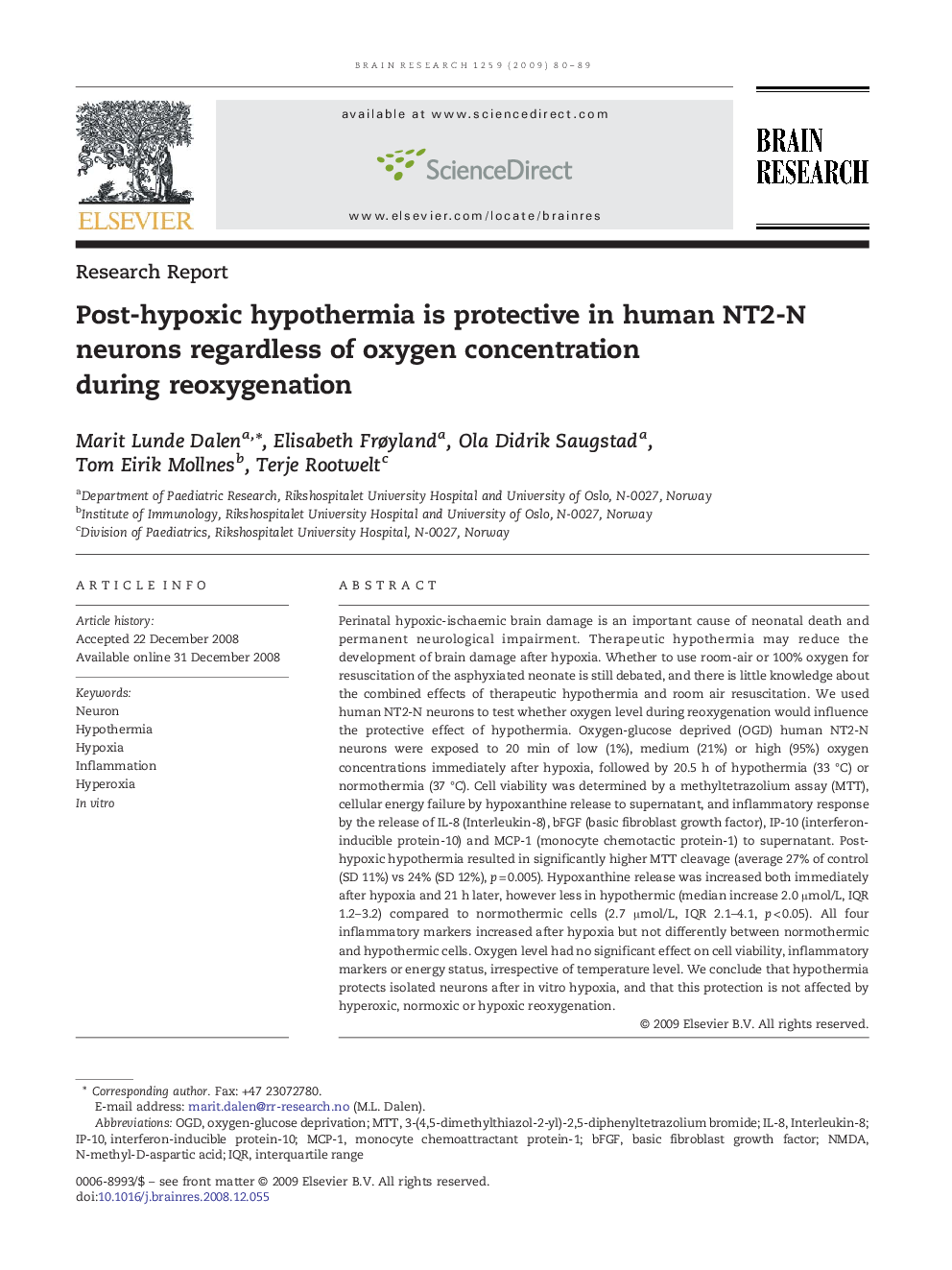| کد مقاله | کد نشریه | سال انتشار | مقاله انگلیسی | نسخه تمام متن |
|---|---|---|---|---|
| 4328552 | 1614180 | 2009 | 10 صفحه PDF | دانلود رایگان |

Perinatal hypoxic-ischaemic brain damage is an important cause of neonatal death and permanent neurological impairment. Therapeutic hypothermia may reduce the development of brain damage after hypoxia. Whether to use room-air or 100% oxygen for resuscitation of the asphyxiated neonate is still debated, and there is little knowledge about the combined effects of therapeutic hypothermia and room air resuscitation. We used human NT2-N neurons to test whether oxygen level during reoxygenation would influence the protective effect of hypothermia. Oxygen-glucose deprived (OGD) human NT2-N neurons were exposed to 20 min of low (1%), medium (21%) or high (95%) oxygen concentrations immediately after hypoxia, followed by 20.5 h of hypothermia (33 °C) or normothermia (37 °C). Cell viability was determined by a methyltetrazolium assay (MTT), cellular energy failure by hypoxanthine release to supernatant, and inflammatory response by the release of IL-8 (Interleukin-8), bFGF (basic fibroblast growth factor), IP-10 (interferon-inducible protein-10) and MCP-1 (monocyte chemotactic protein-1) to supernatant. Post-hypoxic hypothermia resulted in significantly higher MTT cleavage (average 27% of control (SD 11%) vs 24% (SD 12%), p = 0.005). Hypoxanthine release was increased both immediately after hypoxia and 21 h later, however less in hypothermic (median increase 2.0 μmol/L, IQR 1.2–3.2) compared to normothermic cells (2.7 μmol/L, IQR 2.1–4.1, p < 0.05). All four inflammatory markers increased after hypoxia but not differently between normothermic and hypothermic cells. Oxygen level had no significant effect on cell viability, inflammatory markers or energy status, irrespective of temperature level. We conclude that hypothermia protects isolated neurons after in vitro hypoxia, and that this protection is not affected by hyperoxic, normoxic or hypoxic reoxygenation.
Journal: Brain Research - Volume 1259, 9 March 2009, Pages 80–89